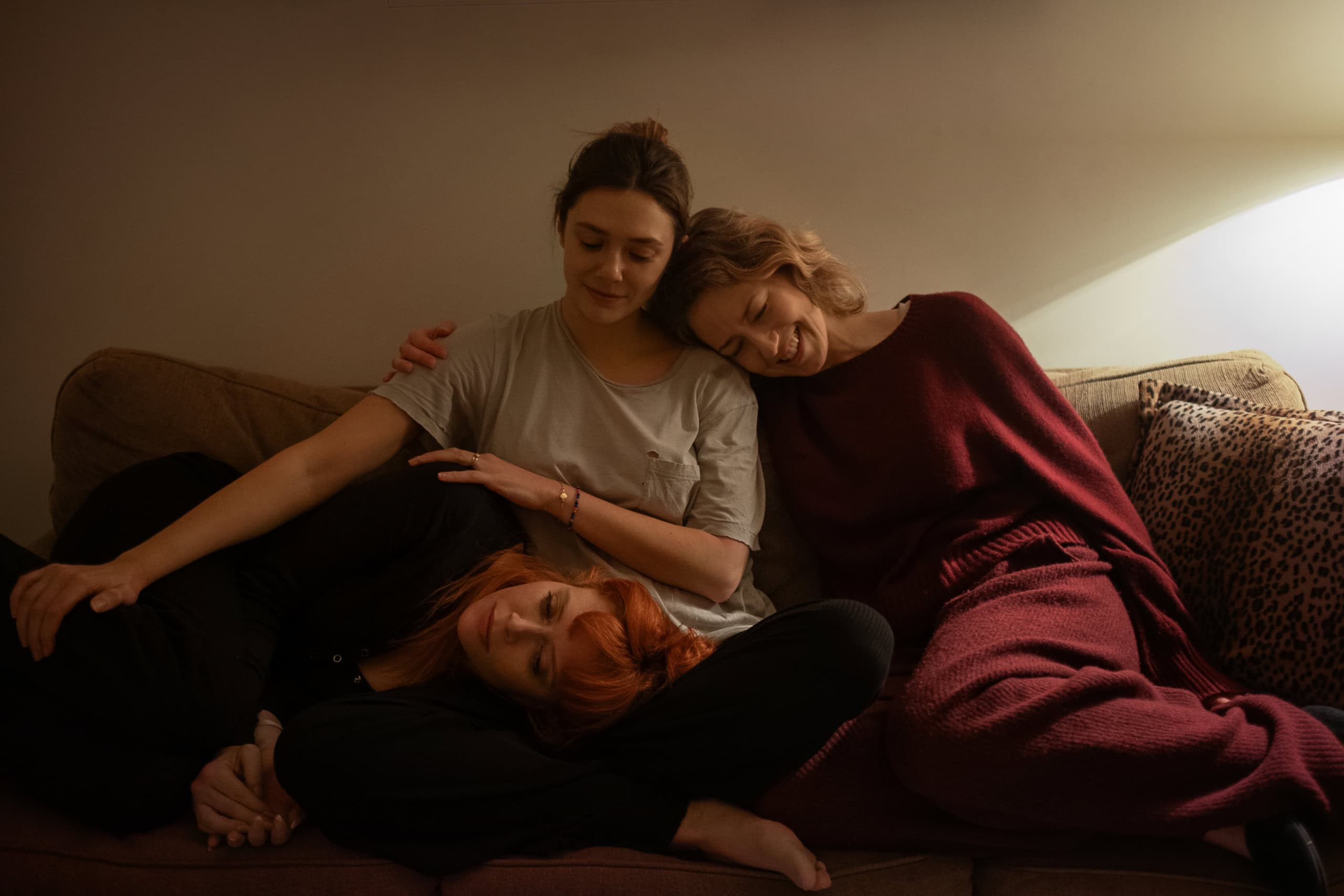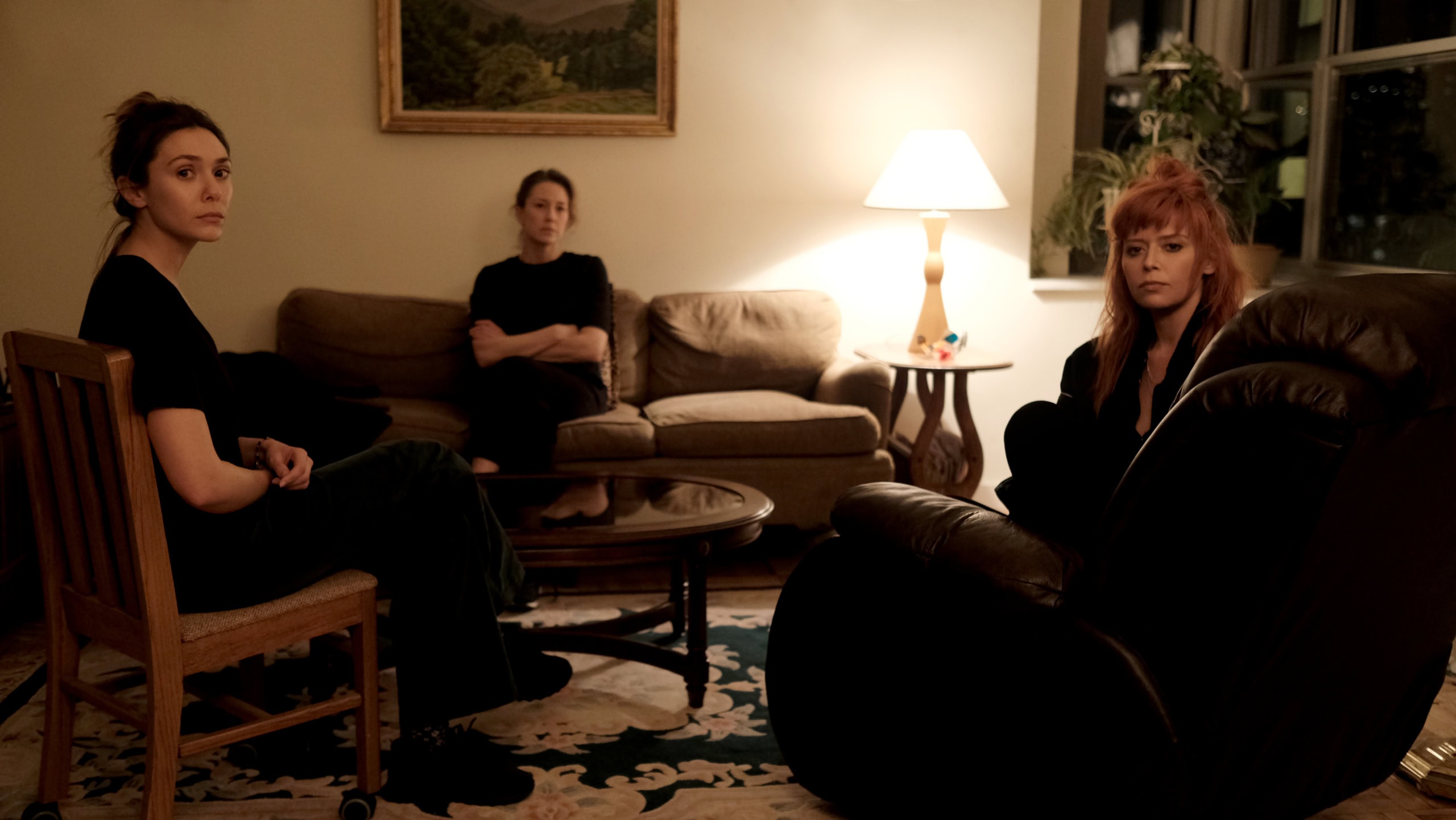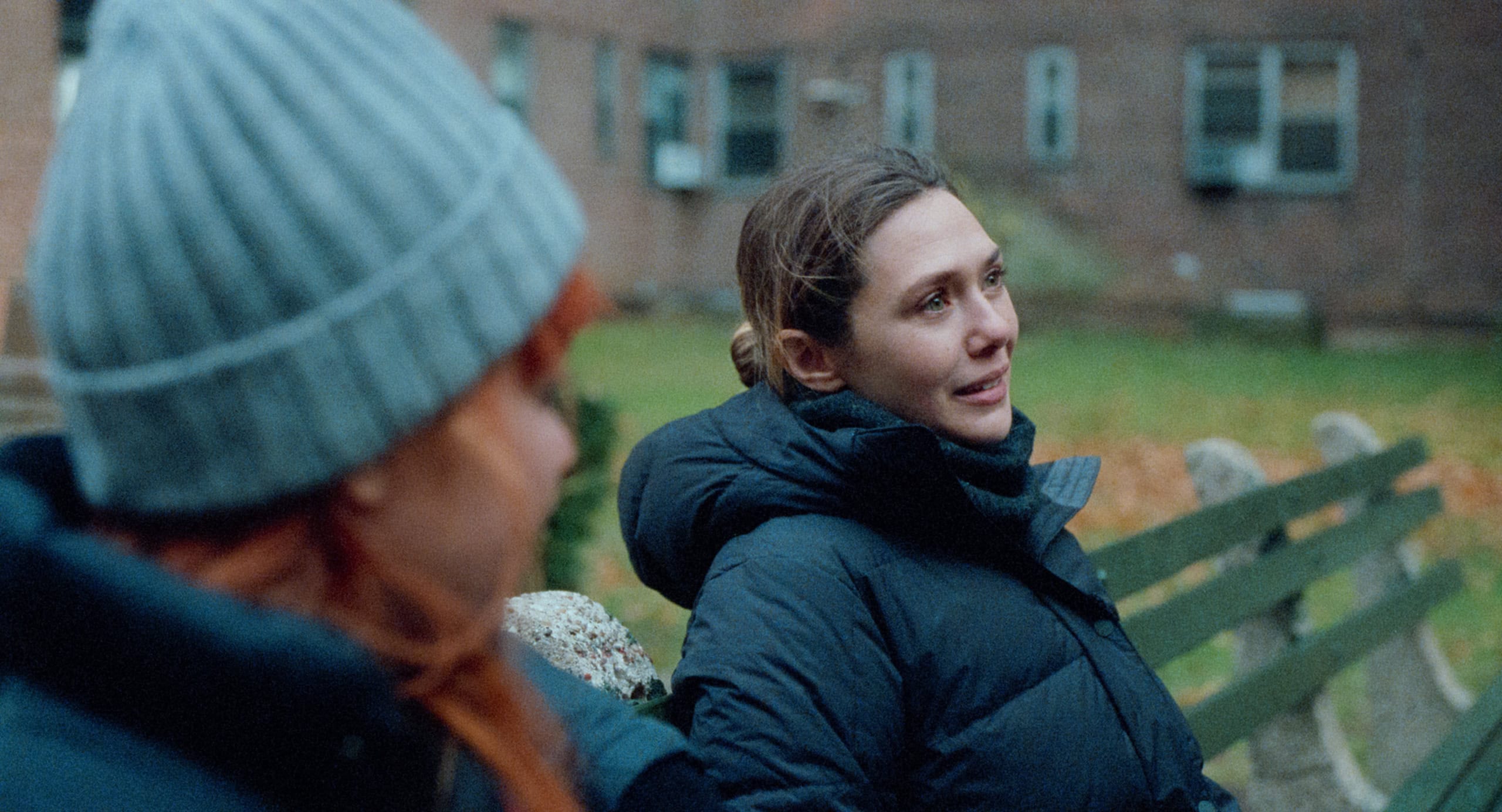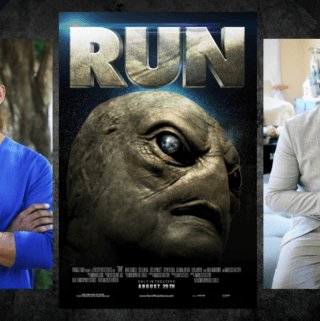An emotionally honest look at grief and relationships, Azazel Jacobs' His Three Daughters is equally heartwarming and heartbreaking with outstanding performances from its core trio of talented actresses.
His Three Daughters Review
On paper, His Three Daughters sounds like it will be a melancholy affair that, like others in this genre, will siphon away any joy you may have felt prior to deciding to watch it. However, writer-director Azazel Jacobs has crafted a story that steps out of that typical direness to deliver something emotionally honest, witty, wry, and unexpectedly moving. It's equally heartwarming and heartbreaking yet will leave you with a profound sense of peace. Carrie Coon, Natasha Lyonne, and Elizabeth Olsen are a powerhouse trio, imbuing their performances with raw emotions and genuine relatability. There is something cathartic in watching these three sisters navigate their father's final days and perhaps more importantly their own tenuous relationships.
One might think that a film like this would rely heavily on flashbacks that would lay the groundwork for sentimentality and explain why these three sisters seem so at odds with one another. Refreshingly, Jacobs tosses all that aside and instead chooses to let the sisters' story play out as close to the reality of their situation as a film can get. Rather than spending much of the runtime in conversation, reminiscing about their past, the dialogue zeroes in on the more practical aspects of end-of-life care: getting a doctor to sign the DNR, taking shifts watching and listening out for their father, attempting to sum up a life in a few paragraphs for an obituary.
As their father Vinnie (Jay O. Sanders) lies in his bedroom dying of cancer, estranged sisters Katie (Coon), Rachel (Lyonne), and Christina (Olsen) have come together in order to be with him before he passes. As the oldest, Katie immediately takes charge of the situation, telling the others how things should be done. She's a control freak and somewhat hostile, which puts her at odds with the next oldest Rachel who happens to still be living in their father's Bronx apartment. Rachel is a middle-aged, pot smoking, sports gambling slacker. But she has been taking care of their father throughout his illness. She also happens to be the only one who is not his biological daughter, having been adopted as a child when Vinnie married her mother. Christina, the youngest and former Deadhead turned yoga mom, comes across as the calm, “perfect” one who plays peacekeeper between her older sisters. At first it seems like the step sisters have little in common but as Vinnie's illness takes a turn and they are forced to spend time with one another, they all learn they are more alike than they realized.
Inside the cozy apartment, Jacobs, working alongside cinematographer Sam Levy, takes an intimate approach at revealing the truth behind the sisters' façades. They are often shot separately, even as they interact, capturing their emotions in a way that puts the audience squarely in their shoes. We can see them working through their grief as well as deciding what they should and should not say to the others. Jacobs also seemingly catches them in the act as they sneak around to avoid each other or eavesdrop from the other side of a door. But what makes this method of filmmaking so affecting for the story is that it also allows us to see their natural progression from annoyance to compassion. It also works to elevate these three sisters from simply being archetypes to being fully realized characters that means something to the audience.
Intimate camerawork aside, Coon, Olsen, and Lyonne are incredible as what might be the best trio we will see this year. From the moment we meet them, we are invested in their lives. Katie might start out as an authoritarian but she's relatable. She's a mom of three trying to navigate life and control as much as she can as a way to cope with the changes. That harsh exterior is a front, hiding the more sensitive and fragile woman beneath. Coon skillfully conveys all of that as she shows Katie's true feelings in brief reveals. Christina at first seems like the peaceful, do-gooder, who would never in a million years talk back or even raise her voice. Cracks begin to show and Olsen portrays her with a resolute strength and desire for self-preservation. When she finally finds her voice, Olsen proves once again she is a force to be reckoned with.
Unlike the others, Rachel appears to be aloof and unserious when it comes to handling the more delicate aspects of their father's passing. She clearly struggles with connecting to her sisters, despite never doubting her stepfather's love for her. Despite the slacker mentality, there is a lot more going on inside Rachel's mind and I found myself drawn to her despite having a completely opposite personality. Lyonne's delivery is just so naturally affecting, it had me in tears well before the intentionally emotional third act. Although they are playing very different women, their performances flow together as they navigate this flood of sadness. By giving these moments time to breathe without feeling the need to inject dialogue or interruptions, Jacobs makes us feel as if we are walking alongside them rather than watching them as these events play out.
There are a few other supporting roles worth mentioning. Jose Febus is a security guard who brings some levity and warmth to the cold Bronx bench that Rachel finds herself sitting on in an effort to appease Katie. Then there is Jovan Adepo, Katie's somewhat boyfriend Benji who calls out Katie in a way that is spot-on without being malicious.
The father's presence looms as the beeps from his various monitors permeate the soundscape. Sometimes they are loud and jarring and other times subtle and subdued. The volume at which you hear those beeps correlate with the emotions rolling off the sisters. It's clever and the paired down background noises amplify the feeling that you are watching a play rather than a film. In fact, the entire thing feels like it could have been a play with its *mostly* singular setting and sharp dialogue. But Jacobs infuses it all with a cinematic flair, particularly in the third act where Sanders makes a brief but impactful appearance. This moment feels surreal yet grounded, giving closure to many I'm sure who will watch this film. He practically steals the entire film away as the father, giving us something to both warm our hearts and break them at the same time.
Verdict
Azazel Jacobs' honest approach to grief in His Three Daughters is as refreshing as it is cathartic. It's not all doom and gloom, as he finds the natural levity that comes from interacting with family and all the drama that can cause. Purposeful camerawork, a tight script, and incredible performances work in tandem to draw you into this family and make you care about them. I found it to be equally heartwarming and heartbreaking, but despite the latter, I left feeling at peace with my emotions. Whether you have lost a parent or not, you will find yourself relating to one of these sisters, quietly reflecting on more somber moments in your own life. Tissues are definitely recommended.
His Three Daughters recently premiered at the Toronto Film Festival. It will release in select theaters for a limited time September 6 and will arrive on Netflix September 20. It is rated R for language and drug use with a runtime of 101 minutes.









Leave a Reply